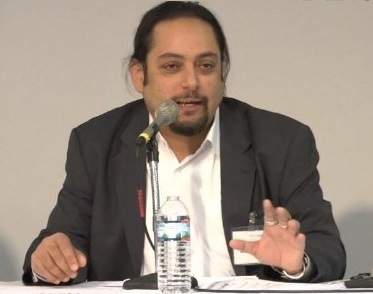OE and CESER funding will support innovation in the further advancement of grid resilience and reliability.
August 1, 2018The Department of Energy (DOE) recently announced Small Business Innovation Research (SBIR) and Small Business Technology Transfer (STTR) Phase II Awards. SBIR and STTR programs are Congressionally-mandated efforts requiring federal agencies with large research and development (R&D) budgets to set aside a portion of their funding for small businesses. Companies that receive awards in these R&D programs keep the rights to any technology developed and are encouraged to commercialize the technology.
Nearly $3 million in funding provided by the Office of Electricity (OE) and the Office of Cybersecurity, Energy Security, and Emergency Response (CESER) will support innovation in the further advancement of grid resilience and reliability. Two grants were awarded for the development of technologies that will help utilities make rapid damage assessments in areas where restoration crews do not have immediate access to the impacted infrastructure. Brain4Drones LLC will develop an unmanned aerial vehicle (UAV) accessory that will allow utilities to rapidly assess the condition of overhead power lines. Oceanit Laboratories, Inc. will develop an emergency damage assessment platform technology that uses machine vision to identify critical utility assets from UAV imagery and machine learning. Underground Systems, Inc. will work on advanced monitoring and diagnostic techniques for fault detection that will allow utilities to locate faults on underground transmission systems more quickly and efficiently. All three awards will be used to continue work funded earlier by OE and CESER.
In May, among DOE’s Phase 1 SBIR and STTR awards were eight OE- and CESER-funded awards totaling nearly $1.2 million. The Phase 1 awardees will address three important areas: mitigating shortages of utility workers, advanced protective relaying technologies and tools, and energy storage.
Workforce development - Factual VR Inc. will focus on virtual reality (VR) and mixed reality for a remote collaboration system to enable technicians in the field to open a shared virtual environment with a remote expert for collaboration. Radiation Monitoring Devices, Inc. will develop new technology for field maintenance based on augmented reality (AR) and technology-assisted training for integration into the planning, management, training and operations aspects of remote maintenance. TiER 1 Performance Solutions will use AR to gather and distribute expert knowledge and support collaboration among distributed personnel through augmented audio and visual communications.
Advanced protective relaying - LuxPoint Inc. will demonstrate a bimodal fiber optic sensor to monitor high voltage transmission cable temperature and vibration-critical information for advanced protective relaying systems. Accurate Automation Corporation will focus on systems monitoring and controlling critical infrastructure. Applied Power Systems, Inc. will develop a technology for the integration of more renewable energy onto our electric grid faster than currently possible, at a lower cost.
Energy storage – Mainstream Engineering Corporation will develop new magnetic materials from higher efficiency transformers with the goal to improve reliability and energy efficiency and to reduce costs. Powdermet, Inc. will support the development of nanostructured magnetic cores for power conversion devices capable of reducing electrical losses by an order of magnitude and enhancing the ability to reliably integrate renewable and distributed power into the grid.
David Howard
David Howard is an Engineer within the Office of Electricity. Mr. Howard has over 25 years of industry and federal government experience in the area of power systems engineering, cybersecurity, R&D, and modeling and analytics. He currently manages the three Phase 1 projects that are addressing advanced protective relaying technologies and tools.


